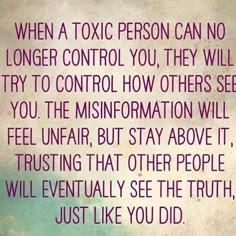In the complex web of human relationships, not all connections nourish our well-being. Among the more insidious dynamics we might encounter is the subtle, yet powerful, influence of toxic individuals who manipulate through guilt trips. Unlike overt aggression or confrontation, guilt-based manipulation works quietly, twisting emotions and eroding self-confidence from within. Recognizing these patterns is crucial—not only to protect our mental health but also to reclaim control over our lives. In this article, we’ll explore the tactics toxic people use to wield guilt as a weapon, how to identify the signs, and what steps you can take to break free from their harmful grip.
Table of Contents
- Understanding the Psychology Behind Guilt Trips
- Recognizing Common Guilt Trip Tactics Used by Toxic People
- The Emotional Impact of Guilt Manipulation on Your Wellbeing
- Effective Strategies to Protect Yourself and Set Boundaries
- In Conclusion
Understanding the Psychology Behind Guilt Trips
At its core, the use of guilt trips is a calculated psychological tactic designed to exploit a person’s sense of responsibility and empathy. Toxic individuals often weaponize guilt to create an emotional imbalance, forcing their targets to comply with demands or expectations without overt confrontation. This manipulation taps into the ingrained human need for social harmony and approval, making it difficult to recognize the underlying coercion. Feeling guilty becomes not a reflection of actual wrongdoing but rather a response to someone else’s emotional agenda.
Understanding this dynamic is crucial in dismantling its power. Notice how guilt trips often involve:
- Exaggerated blame: Assigning responsibility for things beyond your control.
- Selective memory: Conveniently forgetting favorable actions while highlighting perceived neglect.
- Emotional blackmail: Threats or displays of hurt feelings as leverage.
Recognizing these patterns allows you to separate genuine remorse from manipulation, empowering you to set boundaries without succumbing to unfair emotional pressure.
Recognizing Common Guilt Trip Tactics Used by Toxic People
One of the most insidious ways toxic individuals manipulate others is by weaving guilt into everyday interactions, turning affection and responsibility into tools of control. They often employ subtle yet powerful tactics such as selective forgetting — conveniently omitting their own faults while amplifying your mistakes, or playing the victim even when they are the aggressor. This crafty inversion of roles can leave you questioning your own perceptions, ultimately anchoring you in their emotional web.
Other common guilt trip strategies include:
- Exaggerated disappointment: They magnify their sadness or frustration, aiming to trigger feelings of responsibility in you.
- Conditional affection: Love and approval are dangled as rewards for bending to their demands.
- Bringing up past favors: They remind you of things they’ve done, implying you owe them in return.
- Silent treatment: Withdrawal of communication to punish and coerce compliance.
The Emotional Impact of Guilt Manipulation on Your Wellbeing
Experiencing guilt manipulation frequently can leave deep emotional scars, creating a persistent cloud of self-doubt and anxiety that affects every aspect of your life. When toxic individuals weaponize guilt, they exploit your empathy and sense of responsibility, often leading to chronic stress and lowered self-esteem. Over time, this repeated emotional coercion disrupts your ability to trust your own judgment and boundaries, making you vulnerable to further manipulation. The constant internal conflict between wanting to please and protecting your wellbeing drains your mental energy and can lead to feelings of helplessness and confusion.
The long-term effects of such manipulation can manifest not just emotionally but physically as well. Symptoms such as insomnia, headaches, and digestive issues are common, as your body struggles with the burden of persistent psychological stress. Moreover, emotional exhaustion caused by guilt trips may trigger withdrawal from social connections and activities that once brought joy, perpetuating a cycle of isolation. Recognizing these impacts is crucial to breaking free. Ground yourself in self-validation and practice boundaries by:
- Identifying your feelings without judgment and differentiating them from manipulated guilt.
- Seeking external support through trusted friends or mental health professionals.
- Reaffirming your worth independent from the toxic person’s demands or opinions.
Such awareness and self-care help reclaim your emotional balance and pave the way toward healthier relationships.
Effective Strategies to Protect Yourself and Set Boundaries
When facing toxic individuals who weaponize guilt, it’s crucial to recognize your own emotional limits and reaffirm your personal values. Begin by reminding yourself that you are not obligated to carry the emotional burdens others unfairly impose on you. Establish a clear mental line where their guilt trips no longer influence your decisions or self-worth. Use assertive communication to express your feelings without apology—statements like, “I understand your feelings, but I need to prioritize my boundaries to maintain my well-being” can be immensely powerful.
In addition, practice selective empathy by acknowledging toxic people’s tactics without absorbing their negativity. Surround yourself with supportive networks who respect your space and encourage healthy interactions. Some practical steps include:
- Setting firm limits on conversations that turn manipulative.
- Taking deliberate time-outs in emotionally charged situations.
- Keeping a journal to track patterns and reinforce your empowerment.
Remember, protecting your mental health is a form of self-respect, and enforcing boundaries with clarity and compassion is your best defense against guilt-based manipulation.
In Conclusion
Understanding how toxic people manipulate you through guilt trips is a crucial step toward reclaiming your emotional well-being. These subtle, yet powerful tactics can leave you doubting yourself and trapped in cycles of obligation and resentment. By recognizing the signs and setting clear boundaries, you empower yourself to break free from their control. Remember, true relationships are built on mutual respect and genuine care—not manipulation. Stay vigilant, trust your instincts, and prioritize your mental health above all else.

